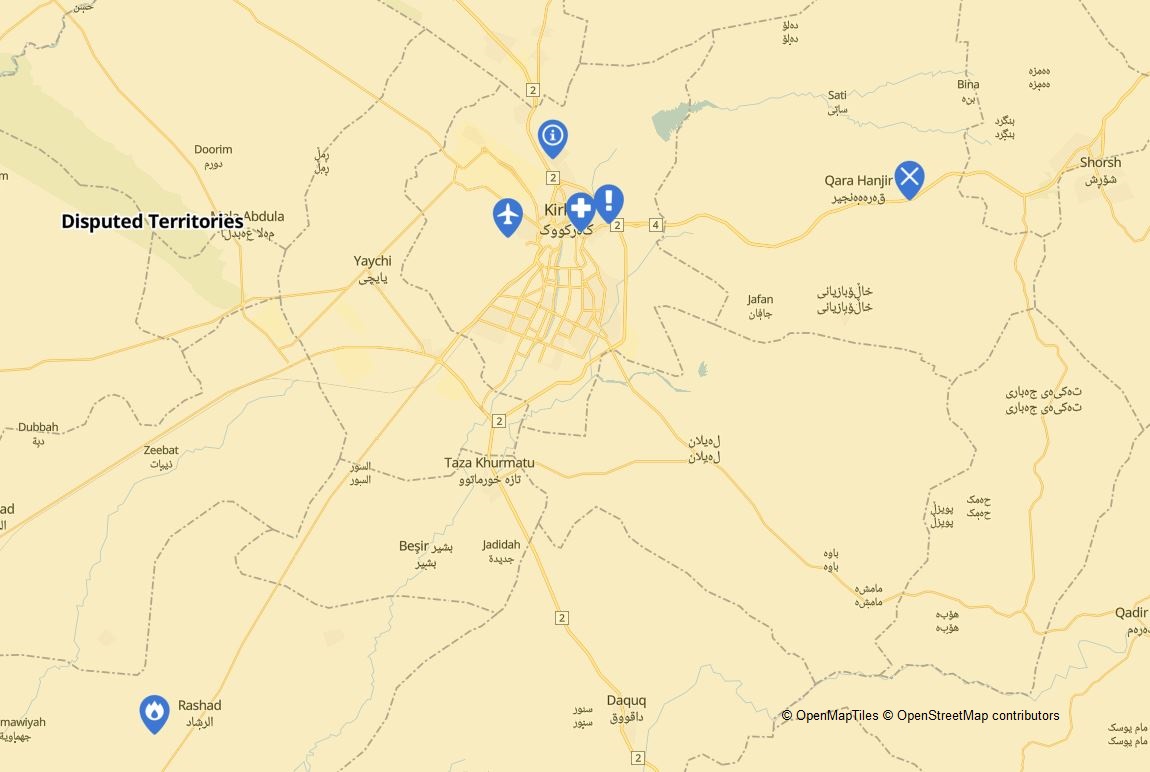1K
Kirkuk
- On September 21, Kirkuk’s acting governor, Rakan al Jabouri, visited Turkey for the fourth time this year. Al Jabouri participated in an industrial conference. The Turkish government has supported al Jabouri and his administration since October 16, 2017. Meanwhile, a Kurdish lawmaker from Kirkuk named Omed Mohammed accused al Jabouri and the head of Kirkuk’s municipality of wasting “three and a half billion dinars,” about two and half million US dollars. Mohammed said the two officials spent a massive budget to plant the trees and beautify the sidewalks, but the work has not been done. The lawmaker filed a lawsuit in the Corruption Commission against officials.
- In an interview with his party’s channel, Kamal Kirkuk, Chairman of the Kirkuk-Garmian Command Council for the Kurdistan Democratic Party (KDP), said the post of governor is Kurdish share, but it has “not been registered with any particular party.” His remarks came in response to a Patriotic Union of Kurdistan (PUK) official claiming that the governorship is his party’s share. Kirkuki also noted that the KDP is working on getting the post since it deserves it as “fairness and election results.”
- The cancer center in Kirkuk is facing a shortage of medicines and equipment, but the Ministry of Health and the Kirkuk administration have refused to provide support. The center was established in 2016 by the former Kirkuk governor, Dr. Najmaldin Karim. According to the latest statistics, 789 cases of cancer and 901 cases of blood diseases were registered in Kirkuk in 2022. Donations fund the center, but the federal and local governments have failed to provide medicine or equipment.
- On September 17, an ISIS (Da’esh) IED wounded three federal police officers near the Rashad subdistrict. The incident occurred when a police Humvee was on a reconnaissance mission. Moreover, the security forces defused an IED placed by a power tower near the Daquq district. Separately, four unknown drones flew over the Peshmerga forces’ positions in the Qara Hanjeer district of Kirkuk. The Peshmerga forces fired at the drones after confirming that they did not belong to the Iraqi security forces and the US-led coalition. Civilian activists claimed the drones belonged to Turkey’s intelligence (MIT) which has been active in Kirkuk since October 16, 2017. On September 19, Iraqi Defense Minister Juma Inad visited Kirkuk and was received at the military airport by al Jabouri. The minister met with security officials amid continued Da’esh attacks in the province.
Khanaqin
- On September 20, dozens of protestors walked miles toward Kalar, demanding the building of the new highway planned years ago. In 2015 the Kurdistan Regional Government (KRG) agreed to build the road between Khanaqin-Kalar, but the project was halted after the Iraqi government cut Kurdistan’s federal allocations. Car crashes have killed at least 750 civilians on the main highway between Karal and Khanaqin since 2003.
Tuz Khurmatu
- On September 22, the military intelligence agency announced that it had arrested a terrorist at a checkpoint south of the city. According to the statement, the security forces detained the terrorist using a fake identification card at a checkpoint. Moreover, on September 19, Da’esh terrorists kidnapped a shepherd near Yangija. Since last year, the terrorist group has been abducting shepherds and releasing them on ransome.
Shingal (Sinjar)
- On September 23, a Turkish drone bombed the Sinjar Resistance Units (YBS) headquarters in the Karaziz subdistrict. Two people were injured in the air strike, including a civilian. According to local police, the YBS headquarters has been evacuated for some time and has only a few guards. Separately, the director of the Duhok department of Migrants and Displaced told Rudaw that 70% of Yezidis have not returned to their areas.

